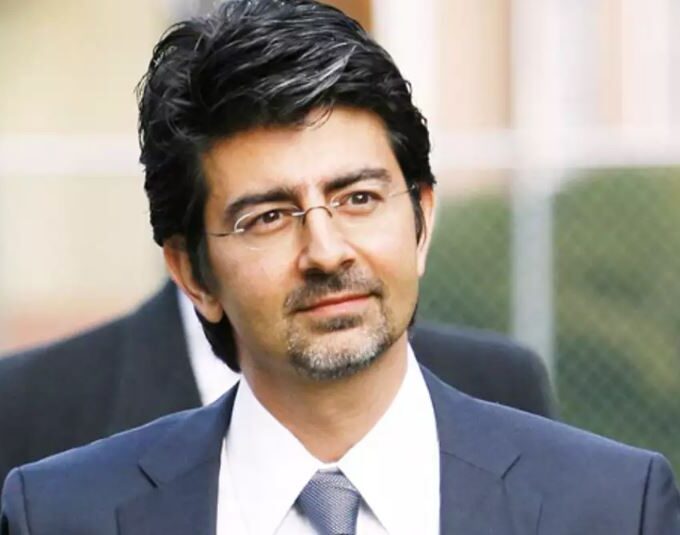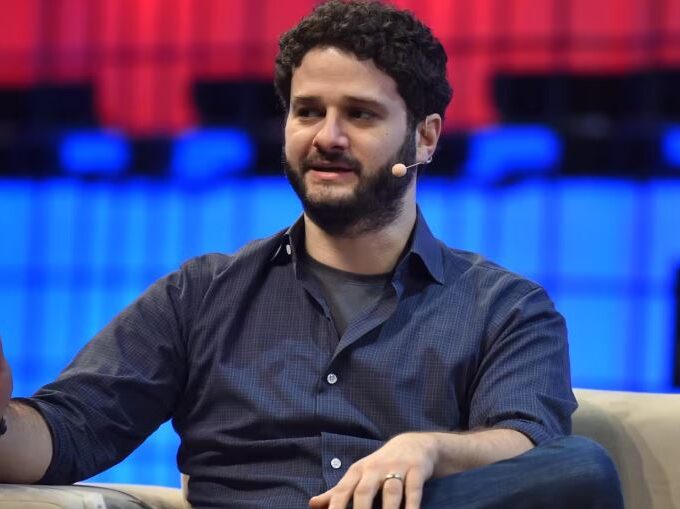- Home
- Billionaires
- Investing Newsletters
- 193CC 1000
- Article Layout 2
- Article Layout 3
- Article Layout 4
- Article Layout 5
- Article Layout 6
- Article Layout 7
- Article Layout 8
- Article Layout 9
- Article Layout 10
- Article Layout 11
- Article Layout 12
- Article Layout 13
- Article Layout 14
- Article Sidebar
- Post Format
- pages
- Archive Layouts
- Post Gallery
- Post Video Background
- Post Review
- Sponsored Post
- Leadership
- Business
- Money
- Small Business
- Innovation
- Shop
Recent Posts
John Malone: The Quiet Architect of Media Empires

John Malone is one of the most influential and enigmatic figures in the media and telecommunications industries. Often dubbed the “Cable Cowboy,” his name may not be as recognizable as other business moguls, but his impact on the way media is consumed, distributed, and monetized is profound and far-reaching. A master of corporate structuring and financial engineering, Malone has shaped the modern media landscape through a series of strategic investments, acquisitions, and leadership decisions spanning over five decades. His story is one of calculated ambition, intellectual rigor, and a relentless pursuit of control, all conducted largely behind the scenes.
Born on March 7, 1941, in Milford, Connecticut, John Carl Malone was raised in a family that valued education and hard work. His father was an engineer at General Electric, which may have influenced Malone’s early interest in science and engineering. He earned a bachelor’s degree in electrical engineering and economics from Yale University and later obtained a master’s in industrial management from Johns Hopkins University. He also earned a Ph.D. in operations research from Johns Hopkins, further honing his analytical and problem-solving skills. This rigorous academic foundation would become a cornerstone of his business philosophy: data-driven decision-making combined with long-term vision.
Malone’s career took off when he joined Bell Labs, but it was his role at McKinsey & Company, and later at General Instrument Corporation, that brought him closer to the cable industry. In 1973, he became CEO of Tele-Communications Inc. (TCI), a struggling cable company based in Denver. Over the next quarter-century, Malone transformed TCI into the largest cable operator in the United States. He did this not through flashy branding or consumer-facing strategies, but through shrewd acquisitions, partnerships, and financial maneuvering. His focus was on infrastructure, scale, and the long game, which often placed him at odds with competitors and regulators but paid off handsomely in the end.
Malone’s tenure at TCI is a textbook case in business strategy. He leveraged debt to fuel expansion, always maintaining a sharp eye on cost efficiencies and network capabilities. He understood early on that owning the “pipes” — the cable infrastructure — gave him tremendous leverage in an industry where content and distribution were beginning to converge. His focus on building and consolidating distribution networks made TCI a valuable asset, and in 1999, he sold it to AT&T for over $50 billion, marking one of the largest deals in media history at the time.
Despite the sale of TCI, Malone was far from done. He redirected his efforts toward Liberty Media, a company he had spun off from TCI years earlier. Through Liberty Media and its various affiliates — including Liberty Global, Liberty Broadband, and others — Malone orchestrated a vast web of investments and holdings across media, telecommunications, and technology sectors. Companies like SiriusXM, Formula One, Discovery Communications, and QVC have all been under Liberty’s umbrella at different points, giving Malone influence over content, distribution, and even live entertainment.
Malone’s approach to investing is often compared to that of Warren Buffett, with whom he shares a preference for long-term value and strategic positioning over short-term gains. But where Buffett is the quintessential value investor, Malone is a structural tactician. He is known for creating complex, tax-efficient corporate structures and for executing “tracking stocks” and spinoffs that maximize shareholder value while maintaining control. His command of tax law, corporate finance, and regulatory frameworks makes him a formidable player in boardrooms and Wall Street alike.
His influence extends beyond corporate boardrooms. Malone is also a significant landowner, reportedly owning more land in the United States than anyone else — over 2.2 million acres. His holdings span across Colorado, New Mexico, Wyoming, and other states, reflecting his affinity for the American West and a personal connection to land stewardship and conservation. While he rarely seeks the spotlight, Malone has used his wealth to support educational institutions, particularly Yale and Hopkins, and has contributed to environmental and wildlife causes through private philanthropy.
Though private in nature, Malone has not been immune to criticism. Some view his consolidation strategies as monopolistic, potentially stifling competition and diversity in media voices. Others critique his emphasis on financial engineering as overly complex and opaque. Yet few can deny his effectiveness. He has repeatedly demonstrated an uncanny ability to spot industry shifts before they happen — from the rise of cable, to the bundling of content and distribution, to the globalization of broadband infrastructure.
In recent years, Malone has played a central role in the consolidation of traditional media companies trying to compete with streaming giants like Netflix and Amazon. His stakes in Charter Communications and Discovery (now Warner Bros. Discovery after the merger with WarnerMedia) continue to position him as a key figure in the evolution of television and digital content. His belief in scale, efficiency, and strategic alliances remains as relevant as ever in an era where media consumption is increasingly fragmented and data-driven.
Despite his enormous influence, Malone remains an intensely private figure, preferring his Colorado ranch to the cocktail circuits of Silicon Valley or Wall Street. He has often been described as brilliant but unassuming, shrewd but principled. He shuns social media and rarely grants interviews, letting his deals and results speak for themselves. Those who have worked with him describe a man of intense focus, intellectual rigor, and unyielding strategic patience.
John Malone’s legacy is not just one of wealth or business success, but of vision. He saw the potential in cable when few others did, championed vertical integration before it was a buzzword, and continues to influence the global media landscape through his investments and leadership. His work has redefined how content is delivered and monetized, and his fingerprints are on many of the most significant media transactions of the past 30 years. In an industry driven by headlines and personalities, John Malone has quietly shaped the infrastructure beneath it all — the wires, the signals, the systems that bring information and entertainment to billions. He may not crave attention, but the story of modern media cannot be told without him.
- Anna Kellnerová
- Billionaire Lifestyle
- Blesk newspaper
- boardroom power
- Business Empire
- Business Magnate
- Business Resilience
- business strategy
- Central Europe
- Coal Industry
- controversial investments
- Corporate Expansion
- Czech billionaire
- Czech economy
- Czech elite
- Czech News Center
- Czech Republic
- Daniel Kretinsky
- energy infrastructure
- energy investor
- Energy Transition
- environmental criticism
- EPH
- European capitalism
- European energy market
- European investments
- European Market
- European tycoon
- Financial growth
- Foot Locker
- French Connection
- international holdings
- J&T Group
- journalism in Europe
- Le Monde
- legal background
- long-term strategy
- Masaryk University
- media influence
- media mogul
- media ownership
- Metro AG
- Natural Gas
- Political Influence
Recent Posts
Categories
- 193 Countries Consortium Partner1
- 193cc Digital Assets2
- 5G1
- Aerospace & Defense48
- AI37
- Arts3
- Banking & Insurance11
- Big Data3
- Billionaires1,487
- Boats & Planes1
- Business332
- Careers13
- Cars & Bikes79
- CEO Network1
- CFO Network17
- CHRO Network1
- CIO Network1
- Cloud10
- CMO Network18
- Commercial Real Estate7
- Consultant1
- Consumer Tech194
- CxO1
- Cybersecurity73
- Dining1
- Diversity, Equity & Inclusion4
- Education7
- Energy8
- Enterprise Tech29
- Events11
- Fintech1
- Food & Drink2
- Franchises1
- Freelance1
- Future Of Work2
- Games149
- GIG1
- Healthcare79
- Hollywood & Entertainment203
- Houses1
- India’s 1000 Richest1
- Innovation46
- Investing2
- Investing Newsletters4
- Leadership65
- Lifestyle11
- Manufacturing1
- Markets20
- Media327
- Mobile phone1
- Money13
- Personal Finance2
- Policy569
- Real Estate1
- Research6
- Retail1
- Retirement1
- Small Business1
- SportsMoney42
- Style & Beauty1
- Success Income1
- Taxes2
- Travel10
- Uncategorized14
- Vices1
- Watches & Jewelry2
- world's billionaires1,456
- Worlds Richest Self-Made Women2
Related Articles
Carrie Perrodo & Family: A Legacy of Wealth, Privacy, and Influence
Carrie Perrodo, the reclusive French billionaire and matriarch of one of the...
By 193cc World's BillionairesJune 3, 2025The Life and Legacy of Pei Zhenhua
Pei Zhenhua was a prominent Chinese military and political leader whose contributions...
By 193cc World's BillionairesJune 3, 2025Pierre Omidyar: The Visionary Behind eBay and a Champion for Global Change
Pierre Omidyar is a name that resonates deeply within the worlds of...
By 193cc World's BillionairesJune 3, 2025Dustin Moskovitz: The Quiet Billionaire Behind Facebook and Asana
Dustin Moskovitz may not be the most famous name associated with Facebook,...
By 193cc World's BillionairesJune 3, 2025















Leave a comment